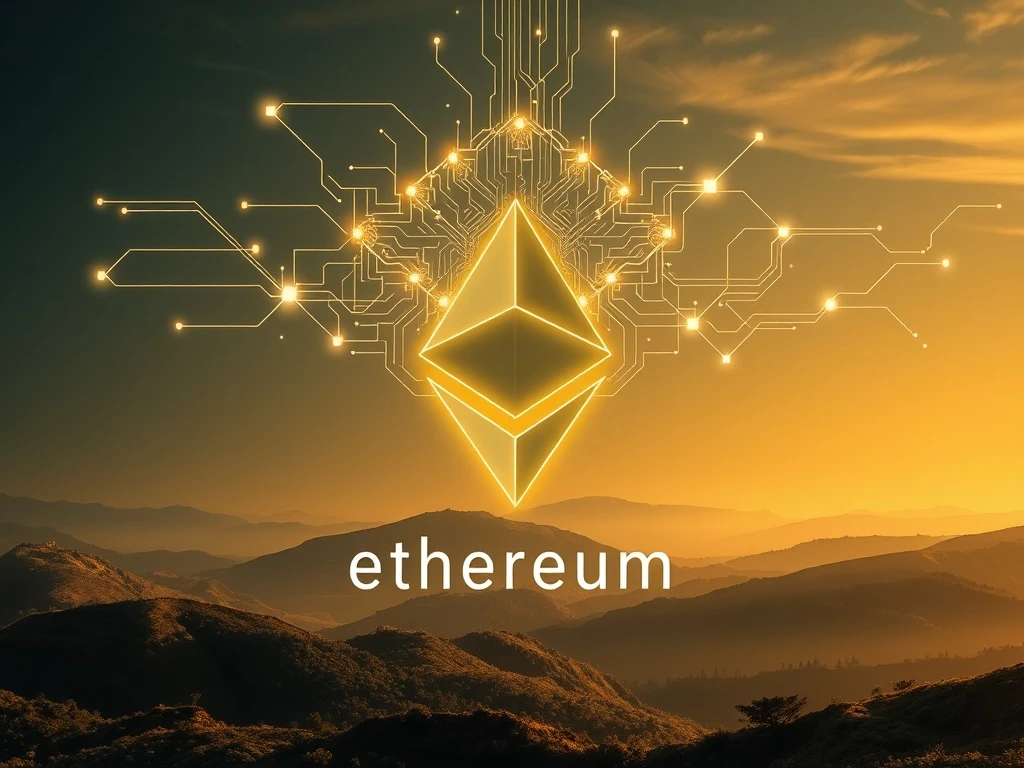Pioneering Ethereum zkEVM: A Breakthrough Blockchain Upgrade Within a Year

Get ready, crypto enthusiasts! Ethereum is on the cusp of a truly groundbreaking transformation. Imagine a future where the world’s leading smart contract platform becomes even faster, more secure, and incredibly decentralized. This isn’t just a pipe dream; the Ethereum Foundation is actively charting a course to integrate a Ethereum zkEVM directly into the mainnet within the next year. This monumental shift promises to redefine how transactions are verified and how the network maintains its integrity, heralding a new era for blockchain technology.
The Dawn of Zero-Knowledge Proofs on Ethereum Mainnet
At the heart of this ambitious roadmap lies the integration of zero-knowledge technology. For years, zero-knowledge proofs (ZK-proofs) have been lauded as a holy grail for blockchain scalability and privacy. Now, the Ethereum Foundation (EF) is preparing to make this a reality on the layer-1 network itself. Sophia Gold, a developer within the EF’s protocol support team, revealed the vision: a move away from every validator re-executing transactions to verify blocks. Instead, validators will simply check tiny, cryptographic receipts – ZK-proofs – that confirm the correctness of transactions without revealing underlying data.
This paradigm shift offers several compelling advantages:
- Enhanced Efficiency: Validators no longer need to re-run complex computations, significantly reducing the processing load.
- Superior Scalability: Less data needs to be transmitted and verified across the network, paving the way for higher transaction throughput.
- Unprecedented Privacy: ZK-proofs allow verification of data without disclosing the data itself, opening doors for new privacy-preserving applications.
Revolutionizing Network Security with zkEVM
The proposed roadmap suggests allowing validators to verify execution using stateless proof verification from multiple zero-knowledge virtual machines (zkVMs). Think of it as having several independent auditors each verifying different aspects of a proof simultaneously. This multi-layered approach adds an extra dimension of network security without compromising speed. The implications are profound: Ethereum is set to become the largest ZK application globally, cementing its position at the forefront of cryptographic innovation.
To facilitate this massive blockchain upgrade, the EF is pushing for specific standards for zkVM teams. Their goals are clear and challenging:
- Speed: Proofs must be generated in under 10 seconds.
- Accessibility: The technology should run on hardware costing less than $100,000.
- Sustainability: Energy consumption must be kept under 10 kilowatts of electricity.
These stringent requirements are designed to ensure that the technology remains fast, secure, and, crucially, accessible. This accessibility is key to fostering truly decentralized validation, allowing everyday individuals to participate in securing the network from home. This protects Ethereum against censorship and central control, reinforcing its core ethos.
A Gradual Yet Determined Transition Towards Decentralized Validation
The journey to a fully ZK-powered Ethereum will be gradual. Gold emphasized that optional ZK clients will initially run alongside existing validator setups. This phased approach allows for rigorous testing and optimization, building confidence in the new system. As these ZK clients demonstrate their reliability and performance, the network will progressively shift towards requiring proof verification instead of re-execution.
While the timeline of ‘within a year’ might seem ambitious for such a fundamental architectural change, the Ethereum Foundation remains confident. The rapid momentum in zero-knowledge research and the flourishing open-source development community provide a strong foundation for this ambitious undertaking. The EF is actively encouraging zkVM teams to collaborate and work towards the vision of real-time, home-based proving, a testament to the community-driven nature of Ethereum’s evolution.
What Does This Mean for Ethereum’s Future?
This planned blockchain upgrade signifies more than just a technical tweak; it represents a philosophical commitment to scalability, security, and decentralization. By embracing zero-knowledge proofs at its core, Ethereum aims to unlock unprecedented capabilities, supporting a new generation of dApps and expanding its global reach. The move to Ethereum zkEVM is a bold step that could solidify its long-term dominance in the decentralized landscape.
In conclusion, the Ethereum Foundation’s roadmap for integrating Ethereum zkEVM into the mainnet within a year is a testament to the network’s continuous evolution and its dedication to pushing the boundaries of what’s possible in blockchain technology. This revolutionary shift towards zero-knowledge proofs promises to deliver a more efficient, secure, and truly decentralized future for Ethereum, inviting everyone to participate in its growth and success. The future of decentralized finance and web3 looks brighter than ever with this monumental step forward.








